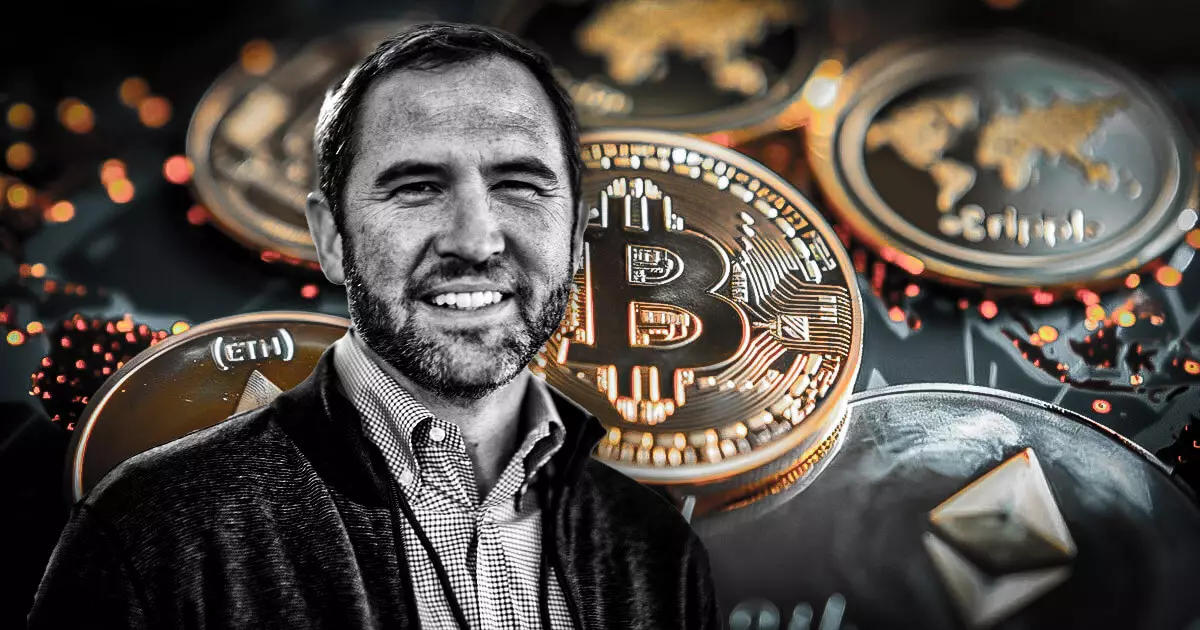The dialogue surrounding cryptocurrency regulations in the United States has gained considerable traction, and Ripple’s CEO, Brad Garlinghouse, is at the forefront of this movement. After recent meetings with key lawmakers in Washington, D.C., Garlinghouse has expressed optimism regarding the trajectory of regulatory frameworks for digital assets. In his communication on February 13, he highlighted discussions with influential figures such as Senators Tim Scott and Chuck Schumer, as well as Representatives French Hill, Ritchie Torres, and Bill Huizenga. These interactions underscore not just the importance of bipartisanship in crafting effective legislation but also the growing acknowledgment among lawmakers of the cryptocurrency sector’s potential to drive economic growth and innovation.
The dialogue initiated by Garlinghouse resonates with a broader sentiment within the cryptocurrency industry. Many stakeholders share the belief that an era of regulatory clarity is on the horizon. The expectation is that ongoing legislative initiatives, particularly those targeting the stablecoin ecosystem, will lay the groundwork for a more structured approach to crypto regulations. Notably, the introduction of bills such as the Stablecoin Transparency and Accountability for a Better Ledger Economy (STABLE) Act in the House and the Guiding and Establishing National Innovation for US Stablecoins (GENIUS) Act in the Senate indicate a commitment to forging a path forward that balances innovation with necessary oversight.
As these legislative efforts unfold, it is essential to consider the role of regulatory bodies like the US Securities and Exchange Commission (SEC) and the Commodity Futures Trading Commission (CFTC). Both organizations are currently engaged in shaping frameworks that address market integrity while fostering economic growth. With recent appointments of pro-crypto advocates, such as former SEC Commissioner Paul Atkins and Brian Quintenz at the CFTC, there is an increasing likelihood that regulatory attitudes will become more favorable towards the industry. This shift may facilitate the development of a regulatory ecosystem that not only protects investors but also encourages technological advancements in the field of cryptocurrencies.
Despite these positive developments, the landscape remains one of uncertainty. The successful passage of proposed legislation is critical, yet it is not guaranteed. Regulatory frameworks must be adaptable enough to respond to the rapidly evolving nature of digital assets while also securing consumer protections. The upcoming decisions by lawmakers will significantly influence the future direction of the cryptocurrency market, and stakeholders remain vigilant as they await further clarity.
The discussions initiated by Ripple’s CEO highlight a pivotal moment in the journey towards regulatory clarity in the cryptocurrency sphere. With increased dialogue among policymakers and concerted legislative efforts, there is cautious optimism that the US can establish a balanced regulatory framework that fosters innovation without compromising market integrity. As we move forward, the collaborative spirit among key stakeholders may well pave the way for a more robust and sustainable cryptocurrency ecosystem in the nation.



















Leave a Reply